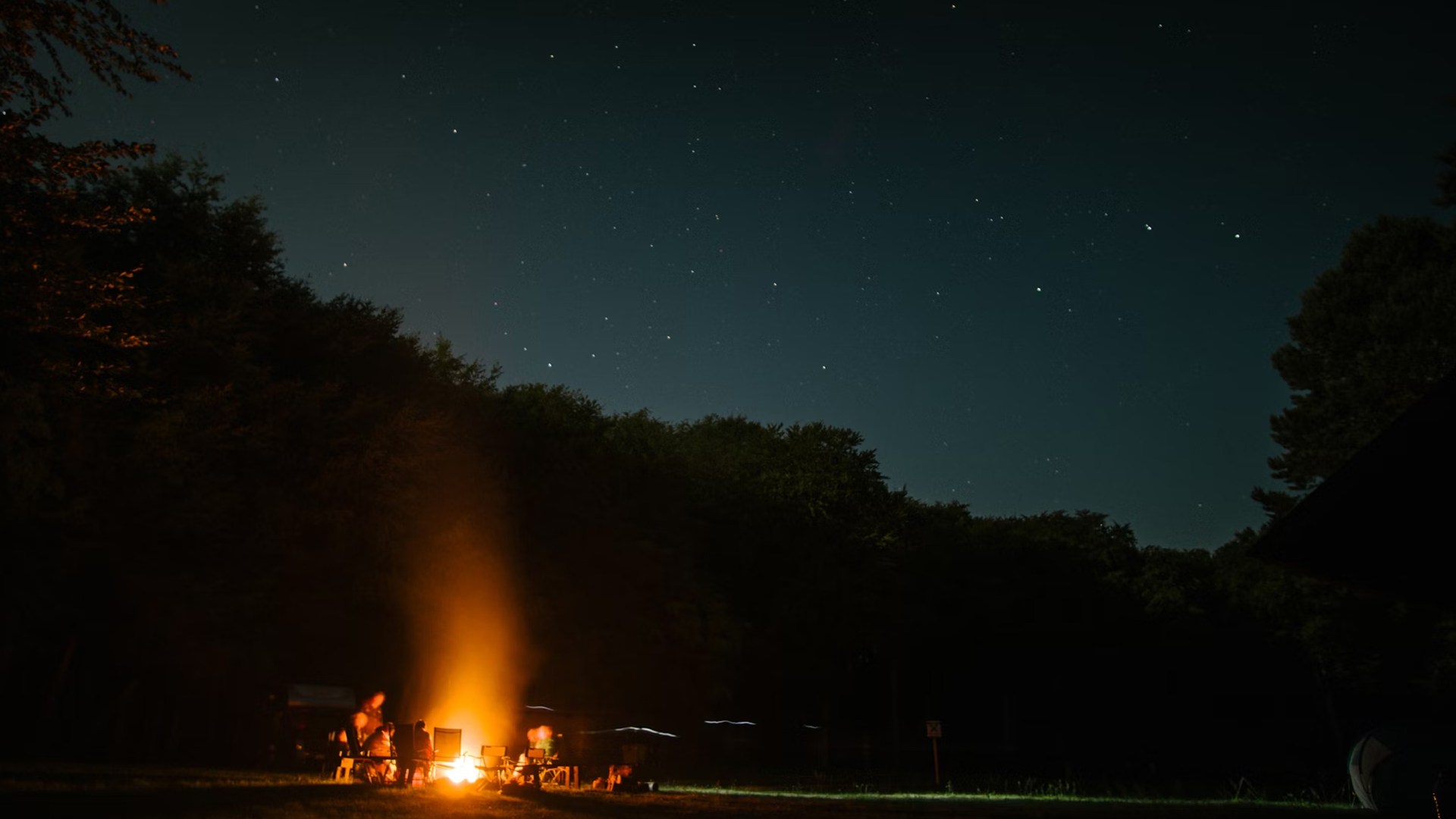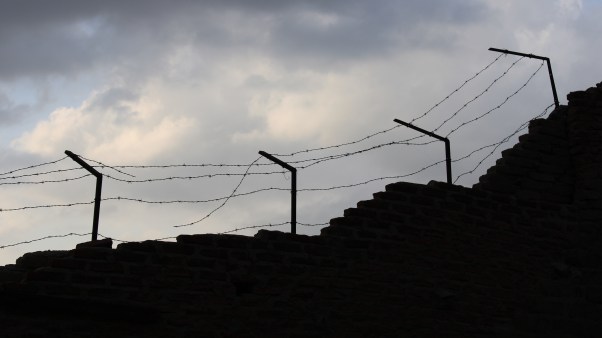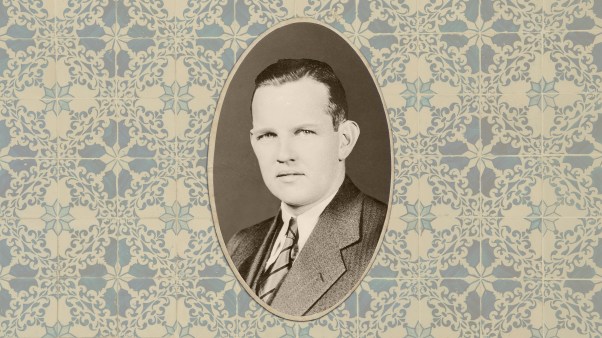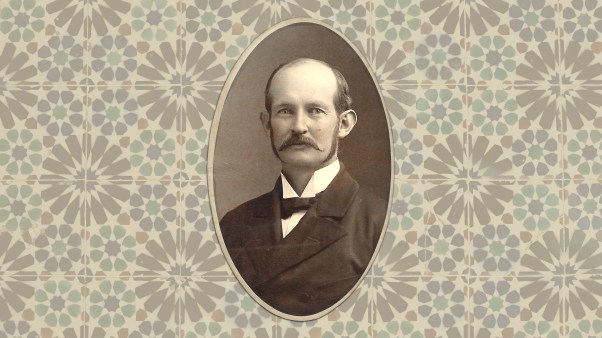We all long for the mountaintop experience—transcendent moments of peace that deliver a concentrated dose of significance and meaning. The “meaning crisis” in our culture is evidence that secular culture is not able to provide lasting significance. But it’s also an incredible kingdom opportunity—especially for pastors—if we can help people, both Christian and neighbor alike, rediscover the beautiful ordinariness of the local church.
Of course, that’s a lot easier said than done. As a church planter and pastor, it feels as though I spend 90 percent of my time persuading people to forgo conquering mountains, pursuing experiences, and achieving goals long enough to even taste—never mind savor—the sacred goodness and beauty of abiding in the body of Christ. It’s not unlike persuading someone to trade a mountaintop experience for the “glory” of car camping.
I know, I know. How are a few fleeting moments beneath the beauty of ponderosa pines and purple mountains majesty worth the risk of peace-shattering toddler tantrums and marital spats? That sounds like a mountaintop-adjacent experience at best. Compared to the thrill of conquering rockslides, unexpected weather shifts, partial oxygen deprivation, and all the extraordinary challenges in climbing a mountain, car camping feels like settling for a cheap imitation of glory. No one has ever “made a name for themselves” by mastering the perfect s’more. It’s all too familiar. Too unimpressive. Too … well, ordinary to have lasting significance.
Humanity is endlessly driven and inventive in our attempts to grasp and hold onto extraordinary significance however we can: through conquest, exploration, higher learning, romance, social progress, vocational success, or scientific advancement—just to name a few. In Genesis 11, the builders of the Tower of Babel weren’t simply proud or arrogant; they were driven by the need to “make a name for (them)selves”—to create for themselves the significance every image-bearer is designed to receive from God and refract into the world.
The more post-Christian our culture has become, the less church is seen as a plausible source of meaning and significance—not only to our neighbors, but sometimes even to those sitting in our pews.
In The Reason for Church, I unpack how radical individualism has transformed the modern self into a new Tower of Babel—built brick by brick out of five “Church Defeaters.” Trusting a church to mediate ultimate significance isn’t easy for anyone because we’re all steeping in cultural narratives that insist the only path toward a meaningful life is to “make a name for (your)self.”
But modern Babel is ultimately doomed, and the cracks may finally be starting to show. Across the country, growing disenchantment with everything from politics to technology is catalyzing a refreshing openness to God. Grace sounds amazing; and who doesn’t need at least some forgiveness? But that same disenchantment is leaving many even more closed to the idea that institutions—including the church—have anything to offer in our search for meaning. Compared to the intense experience and achievement of climbing a mountain, church sounds distressingly ordinary.
It is this existential discontent that drives thousands of tourists to flock to Colorado every year to hike or climb one more of our state’s over 50 “14ers”—mountain peaks that rise at least 14,000 feet above sea level. There’s nothing quite like seeing the world, and our place in it, from so near to the heavens. It is a unique perspective—birthed from the combination of extraordinary achievement and spectacular beauty—that makes you feel at once small and significant at the same time.
Personal goals may vary, but every climber, whether consciously aware of it or not, is searching for an experience of truth, goodness, and beauty—something big enough to ignite a life-giving fire within. As C.S. Lewis wrote in his famous sermon The Weight of Glory, we “do not want merely to see beauty … We want something else which can hardly be put into words—to be united with the beauty we see, to pass into it, to receive it into ourselves, to bathe in it, to become part of it.” Whether we use the language of beauty, significance, or meaning, it is glory that sets us building towers and climbing mountains.
Most get a glimpse of that beauty looking at the world from 2½ miles high—but only for a moment. Some tourists even relocate here, hoping proximity will make glory more accessible and emptiness more resistible. But true glory is made more ephemeral and elusive the more we try to recreate it. Too often, our search for significance in the “mountaintop experience” feels like chasing after the wind. Our souls inevitably become restless again because no mountaintop experience is potent enough to continue burning once ordinary life resumes at sea level.
For glory that is both satisfying and sustainable, we need what no 14er can ever hope to compete with: the humble fire pit.
Admittedly, nobody plans a family camping trip specifically to experience the “glory” of a steel-ringed fire pit—if they even think about it at all before arriving. But it is around the ordinary fire pit that extraordinary meaning and significance are kindled.
Like any local church, fire pits are the opposite of sexy. They’re often encrusted with (what you hope is) someone else’s burned breakfast. They’re heavy and clunky. Adjusting the wrought iron grate can produce one of the worst sounds ever heard by the human ear. But fire pits are not, themselves, the point. They are vehicles that contain, shelter, and nourish something much more beautiful and organic.
Campfires are a lot like relationships. They are fickle, living things. Without regular tending, they can quickly fizzle out or even die. Even if you cheat and use the lighter fluid you packed “just in case” to get it started, there are no shortcuts in keeping them going. They still need nurture and care and space to breathe. Too much fuel can leave you burned. Too little, and everyone’s left in the cold.
There is no better way to appreciate a fire pit than trying to build a fire without one. They hold everything together. The same metal walls that protect vulnerable embers from being snuffed out by a stiff wind also maximize fuel and prevent energy leaks by reflecting heat back toward the heart. It still takes work to get a fire started, but fire pits are shelters where life-giving fire is most reliably kindled and sustained.
Therein lies the unexpected goodness and beauty of the humble fire pit.
Fire pits don’t exist for their own sake. We take them for granted because they are so reliable. Each one will bless hundreds of families every year, and yet each goes completely unnoticed, uncelebrated, and maybe even disdained.
Everything that comes after pulling your overpacked car into the parking space—from setting up your tent and unloading the food to arranging your fold-out chairs and tying the dog’s leash to a tree close enough to be with the family but far enough away that they can’t reach the brats sizzling over the flames—everything is dictated by the location of the fire pit. Or at least, it should be. Everyone flourishes to the degree that camp life orbits around it. Failing to do so will make everything that follows more unpredictable, tenuous, and stressful.
And if you’ve ever lingered by the fire long enough, you know: It’s not just about warmth or cooking food. Something deeper happens there in the wake of all the mundane work it took to get situated.
Once you’ve gotten everyone fed and the kids in bed, you realize this isn’t settling at all. That is, unless we’re referring to the sacred stillness that settles on you while watching embers pulse with light. That “settling” settles your soul. It may be one of the only times you truly rest. Time slows to a crawl, and you happily submit to its pace and stop trying to bend it to your will. You revel in the absence of light pollution, your attention too captured by starlight to be distracted by screens. Conversation normally crowded with banal small talk suddenly and naturally overflows with the deeper things you never have time or space to contemplate. At some point while digging the melted marshmallow out from under your fingernails, you remember what it’s like simply to breathe for a moment. To be created without the pressure to self-create.
Each settling moment is a sacred shift in perspective, one even more transcendent than any gain in elevation. Getting to that place requires time. Intention. Stillness. But it makes all the inglorious car packing and did-we-remember-everything angst you went through just hours earlier meaningful and … well, worth it. Significance backfills into our ordinary.
There’s a place for the mountaintop experience. We should aspire to achieve extraordinary things. But neither can be the source of dignity, value, and worth that individualism promises them to be. They simply can’t hold a candle to basking in the relational and creational glory that’s so naturally given and received around an unsexy, wrought iron, well-worn, and stale-food-encrusted fire pit.
Whether climbing a mountain or building a tower, “making a name for ourselves” will always be more attractive to modern people than receiving our identities from God. But we now live in an age where individualism has so saturated our souls with an unholy restlessness that sacred stillness feels impossible anywhere. We wouldn’t recognize holy fire if it singed our eyebrows. So it isn’t surprising that church might feel too much like car-camping, like settling for a lesser version of whatever we’ve staked our worth in being able to find or climb or achieve on our own.
But that’s why the “fire pit” is such an apt (if imperfect) analogy: It’s not about the fire pit any more than it’s about the church. The local church is simply where God’s extraordinary love and grace is ordinarily found. The more the lives of your people orbit the holy fire contained therein, the more your church will become a space where warmth, belonging, presence, perspective, and sacred stillness are ordinarily experienced. Meaning is rekindled every Sunday and carried into every Monday through Saturday. It is not in climbing a mountain but in gathering as God’s people that weary souls are invited to come, sit, breathe, and be made new. In Christ’s name, there is no need to make one for ourselves.
Just like we take the humble fire pit for granted, pastors know how easily we overlook the local church when our lives are most shaped by it. That’s because the body is only good and the bride only beautiful because of Christ. While church may not match the euphoria of a mountain summit, it kindles a far more profound and lasting fire within—one that actually lasts and can be carried into everyday life.
When you gather your people around the ordinary means of Word and table, when they experience Christ’s presence in community, you draw their gaze to the true source of meaning, significance, and purpose. The local church doesn’t promise escape into the extraordinary; instead, it brings our lives into orbit around a holy fire—the living God who meets us in our ordinary moments and imbues them with the very meaning we’ve been searching for all along.
Brad Edwards is the lead pastor of The Table (PCA) in Lafayette, Colorado and author of The Reason for Church.









